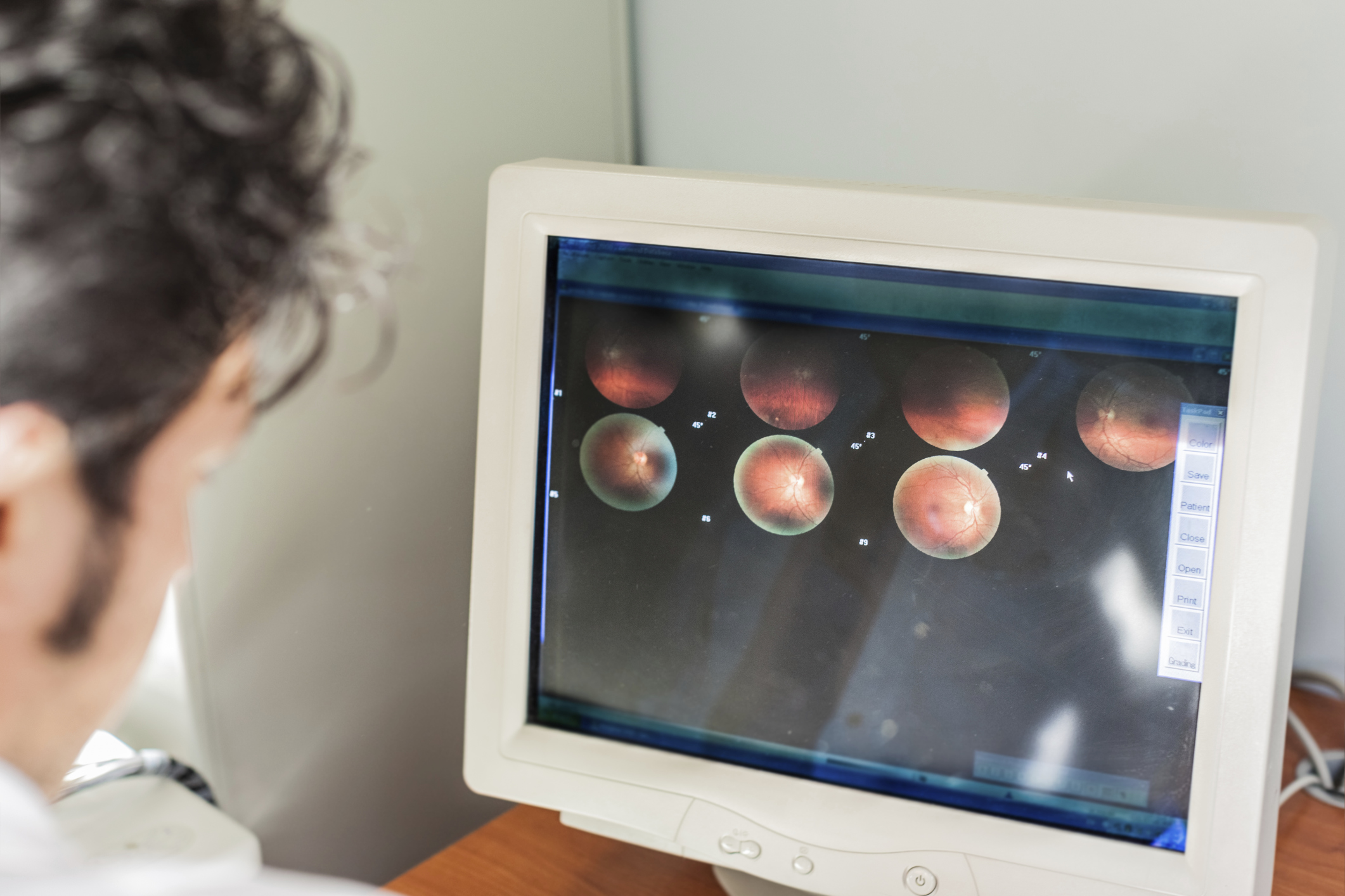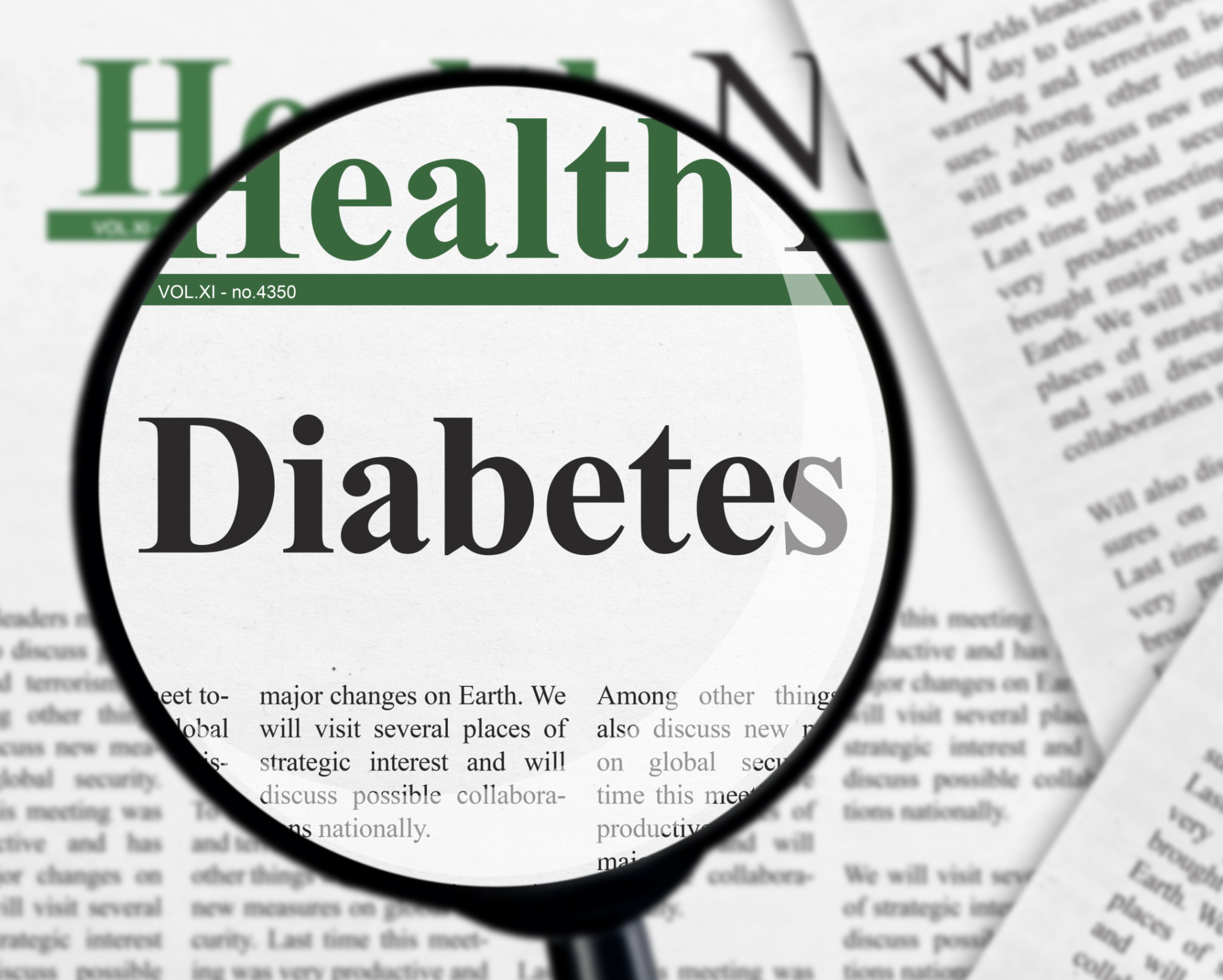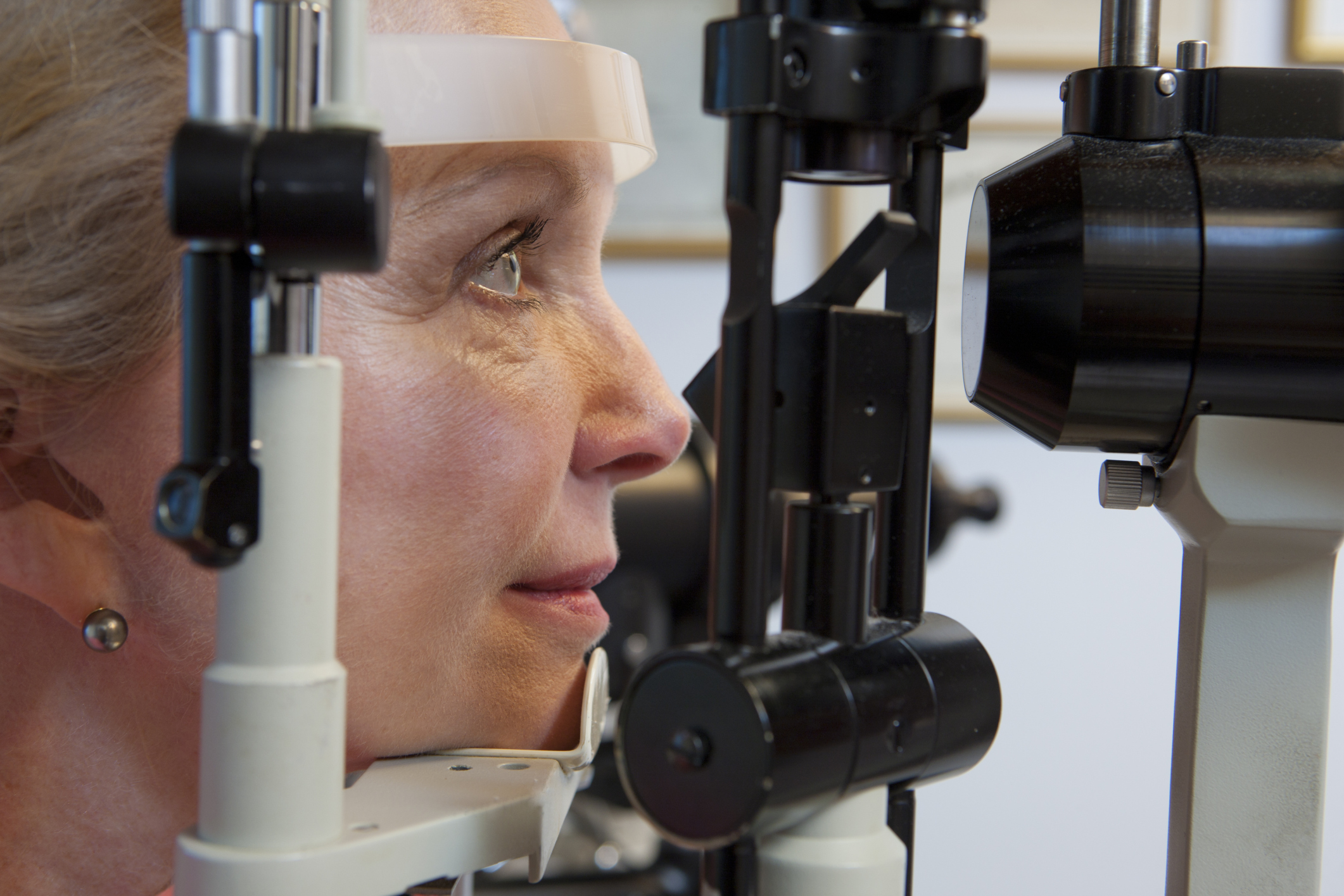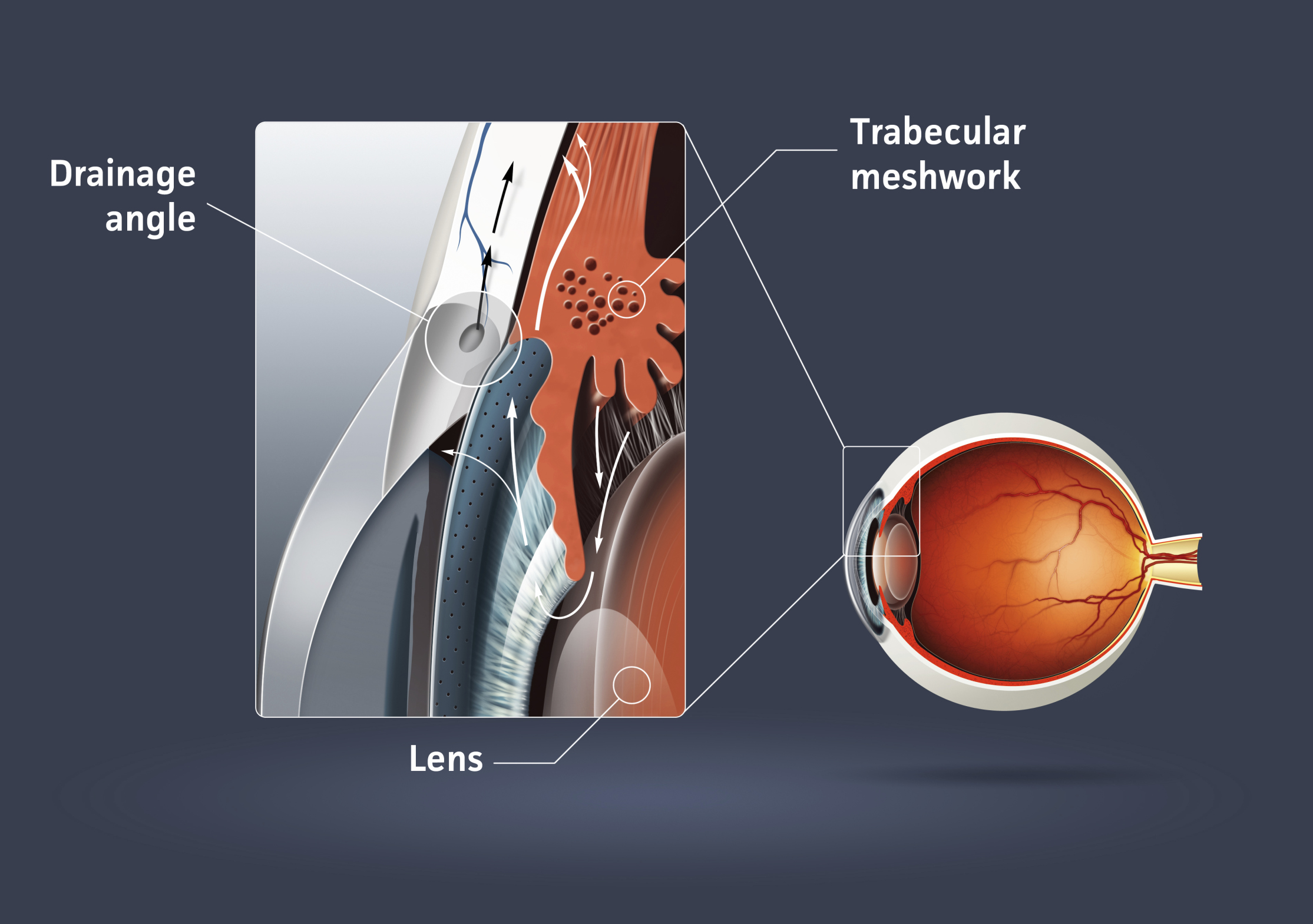Eye Health Blog
Our eye health blog answers your most pressing questions about eye care, vision and common eye ailments.
You might suffer from dry eye — and wonder how you can prevent it. Maybe you’re planning to get cataract surgery and want to know what to expect. Or you might just be looking to change up your diet to include more types of food that promote eye health.
Whatever your needs, our eye health blog can empower you with insights to inform your decisions.
The eye doctor is “in.”
Treatments for Macular Degeneration
Even with today’s advancements, macular degeneration cannot be 100% cured. However, there are several treatment options that can help slow down the disease’s progression to prevent severe vision loss. Dry macular degeneration is the more common form of age-related macular degeneration. Dry macular degeneration is also considered to be a less advanced form of the condition and cannot be treated. However, ophthalmologists recommend that patients keep their condition carefully monitored. If only one eye is affected at the time, be sure to test the other [...]
How Can I Proactively Prevent Macular Degeneration?
Age-related macular degeneration is the leading cause of blindness among the elderly. The condition often starts after the age of 60 and slowly causes patients to lose their central vision until they cannot recognize faces, drive or read. There is no foolproof method to prevent macular degeneration. However, there are many things that you can do to minimize your risk. Routine eye exams are a must to make sure that you are able to identify macular degeneration or any other problem with your vision at [...]
What Are The Complications Associated With Macular Degeneration?
Being diagnosed with macular degeneration can be quite disheartening. The condition is not curable as of yet and can make various everyday tasks much more difficult. Aside from the loss of vision, there are many other complications associated with this condition. For starters, most people are not able to handle the inevitable vision loss that comes with macular degeneration. There is a high possibility that patients may develop anxiety and depression as a result of the diagnosis. It is definitely not easy to cope with [...]
What Are The Stages of Macular Degeneration?
Like most progressive diseases, macular degeneration or age related macular degeneration (AMD) also has a few stages. The condition almost always starts out as dry macular degeneration before it progresses on to become wet macular degeneration (or the advanced form). The majority of AMD patients have the dry form of the condition. It must be understood that the progression of the condition differs for each eye and for each person. Early AMD The first stage of dry macular degeneration often displays no signs. Vision remains [...]
Symptoms of Macular Degeneration
Age related macular degeneration or AMD often manages to go unnoticed until it becomes a severe problem. One of the main symptoms of this condition is a blurring in the center of your vision. In it's developed stages, macular degeneration can result in blurry vision and an inability to identify fine details along with the loss of sensitivity to contrast and a distortion in the central portion of your vision. Most often, your peripheral vision will remain unaffected. Dry AMD often takes about 5 – [...]
Caring for Macular Degeneration
Macular degeneration occurs when the macula, the small central part of the retina, deteriorates as a person grows older. This condition is considered to be the most prominent cause of vision loss in those who are older than 60. Often referred to as age-related macular degeneration, the condition does not necessarily lead to total blindness. However, it can cause significant vision loss. Macular degeneration comes in dry and wet form. The dry form is identified by the presence of yellow deposits in the macula while [...]
Diabetes and the Eyes
Regular visits to an ophthalmologist are highly recommended for those who have diabetes. High levels of blood sugar increases the risk of various eye and vision related problems. In reality, high blood sugar is the main cause of blindness in diabetic adults between the ages 20 – 75. If you are a diabetic who is experiencing eye problems such as blurred vision, then it is most likely a temporary problem caused due to high blood sugar levels. When your blood has too much sugar, it [...]
Choosing the Right Ophthalmologist
Choosing the right ophthalmologist is one of the most important decisions you can make in your health care. Your future of eye health and your valuable sense of sight depend on your choice and therefore, it is very important that you choose someone with the right skills, qualifications and reputation. One of the most important things that you should know is that ophthalmologists are not the same as opticians and optometrists. An ophthalmologist is a fully-fledged MD (Medical Doctor) or a medical doctor who specializes [...]
How Glaucoma is Diagnosed
Glaucoma is a type of eye disease where the pressure within the eye is greatly increased. The high pressure results in a buildup of fluid within the eye and over time, lead to a damaged optic nerve. As it is evident, glaucoma is a serious condition and is best treated immediately and at the earliest possible stage. Various general eye tests also test for glaucoma on a regular basis but once identified, you will have to obtain the necessary treatment to preserve your eyesight. [...]
What to Expect from a General Eye Exam
Regular eye exams, performed by a qualified professional, are an essential part of your eye care routine. A thoroughly designed eye examination consists of various standard tests that are designed with the intention of measuring the patient’s vision performance. The exams are not painful or uncomfortable and take up less time than an hour. Eye exams come highly recommended for everyone at any age group. It is very important that infants have their eyes checked regularly while adolescents and adults should also schedule them as [...]
Choosing Multifocal IOLs
After the removal of the cloudy lens, the next step of cataract surgery is to restore the patient’s vision. For those who do not want to wear contact lenses or eyeglasses, multifocal IOLs are the next best choice. In the past, cataract surgery was aimed at restoring a patient’s vision for basic tasks. If someone who’d had the surgery needed to read or perform tasks that require them to see up close, they would have to wear bifocals. Nowadays, cataract patients can choose multifocal IOLs [...]
How to Prepare for Cataract Surgery
Cataract surgery is the best option to restore cataract damaged vision. With a 95% success rate, it is one of the most effective ways of restoring sight with minimal down time. The first step of the process involves running tests to determine the type of IOL (Intraocular Lens) to suit your eyes. The tests will be instrumental in determining the shape and size of your eyes as well as the curvature of the cornea. When cataract surgery is first recommended for you, your doctor may [...]
 New Address:
New Address:











